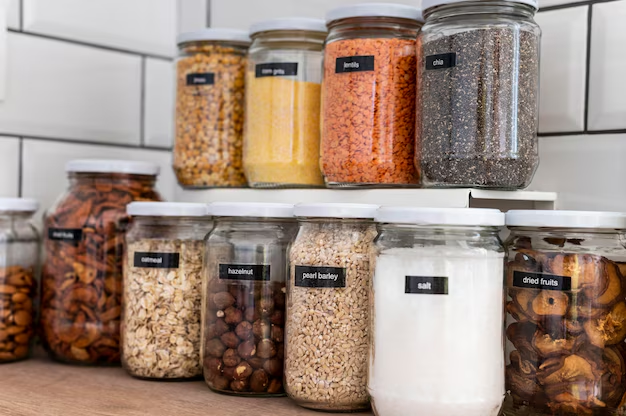The Great Ketchup Debate: Should It Be Refrigerated?
If there's one condiment that sparks debate every time it graces a kitchen table, it's ketchup. This red staple, seen in pantries and fridges alike, raises an age-old question: Should ketchup be kept in the refrigerator? Opinions vary, with some staunchly defending the cool environs while others embrace room temperature as ideal. This article dives deep into the topic, exploring various angles and shedding light on related storage questions to help you determine the best spot for your ketchup.
🏠 To Chill or Not to Chill: A Look at Ketchup's Contents
The Ingredients at Play
At its core, ketchup is an amalgamation of tomatoes, vinegar, sugar, salt, and various spices. Each of these ingredients plays a role in the debate over its storage:
- Tomatoes: These provide the base and natural flavor.
- Vinegar: Acts as a preservative due to its acidity.
- Sugar and Salt: Both function as natural preservatives.
How These Ingredients Affect Shelf Life
The combination of vinegar, sugar, and salt imbues ketchup with a remarkable shelf stability. These ingredients work together to impede microbial growth. This raises the argument: if the ingredients safeguard it at room temperature, why refrigerate?
❄️ The Case for Refrigeration
Longevity and Freshness
Proponents of refrigeration argue that storing ketchup in the fridge extends its shelf life once opened. The cooler temperature slows down chemical processes and potential bacterial growth, helping to maintain flavor and freshness over an extended period.
- Flavor Preservation: Cold storage helps preserve the intended flavor profile.
- Reducing Spoilage: Ketchup that is refrigerated stays fresh longer, especially in hotter climates.
Manufacturer Recommendations
Many ketchup manufacturers suggest refrigerating their product after opening. While this is not necessarily due to immediate spoilage, it’s often a precautionary measure to maintain optimal taste and quality throughout its use.
🌿 Room Temperature Advocates
Taste and Texture
For some, keeping ketchup at room temperature is a matter of taste. Cold can dull flavors, and warm temperatures can allow the full spectrum of flavors to develop:
- Enhanced Flavor: Room-temperature ketchup often has a more robust taste.
- Consistency Matters: The texture can be more enticing, as cold temperatures can thicken the sauce.
Historical Usage and Culinary Tradition
Before domestic refrigeration was common, many condiments, ketchup included, were stored in cupboards. Traditionalists maintain that if it was good enough before, it’s good enough now.
🛒 How Packaging Plays a Role
Glass vs. Plastic Bottles
Ketchup is packaged in glass and plastic bottles, each influencing storage choices:
- Glass Bottles: More common historically, these are often sealed better, supporting room-temperature storage.
- Plastic Bottles: Popular for their convenience, but they might not seal as tightly, making refrigeration preferable once opened.
🔎 Exploring Related Ideas: Other Condiment Storage Tips
The ketchup debate often spills over to other condiments. Here's a quick look at some other common culprits:
- Mustard: Generally safe at room temperature due to vinegar content.
- Mayonnaise: Requires refrigeration to prevent spoilage.
- Soy Sauce: Salt content allows room-temperature storage, but cold can preserve flavor longer.
🧩 Practical Tips for Storing Ketchup
Sometimes the answer is context-driven, balancing the benefits of room temperature and refrigeration. Here’s how you can make a decision based on your needs:
- 🌞 For Daily Use: If you use ketchup frequently, consider keeping a small bottle out and the rest in the fridge.
- ❄️ For Long-Term Storage: When in doubt, or for infrequent use, the fridge is your friend.
- 🛍️ Consider Buying Smaller Quantities: For those who appreciate room temperature but worry about spoilage, opting for smaller bottles can be a smart compromise.
📜 Conclusion: Let Your Lifestyle Guide You
Whether ketchup belongs in the fridge or pantry isn't just a matter of science—it's an interplay of tradition, preference, and practicalities. Both methods have benefits, hinging on personal taste, frequency of use, and environmental conditions. Ultimately, the choice is individual.
Summary Points
- Ingredients: Vinegar and sugar act as natural preservatives, making room temperature feasible.
- Refrigeration Benefits: Extends freshness, especially in warm climates.
- Tradition and Preference: Some argue for room temperature to enhance flavor.
- Packaging: Glass and plastic bottles influence storage decisions.
- Storage Context: Your lifestyle and usage frequency should guide whether you chill that ketchup bottle.
Whether you enjoy your ketchup cool and crisp or warm and lively, understanding the ins and outs of its storage can enrich your culinary experience. So next time you're reaching for that familiar red squeeze bottle, you'll know just where it should have been waiting for you.

